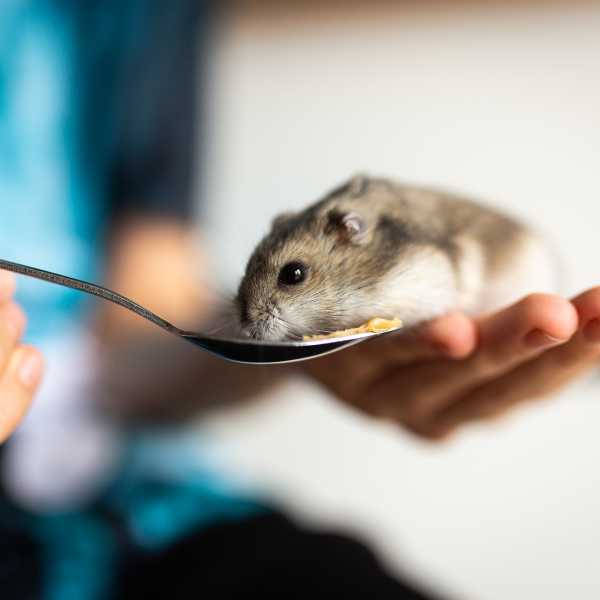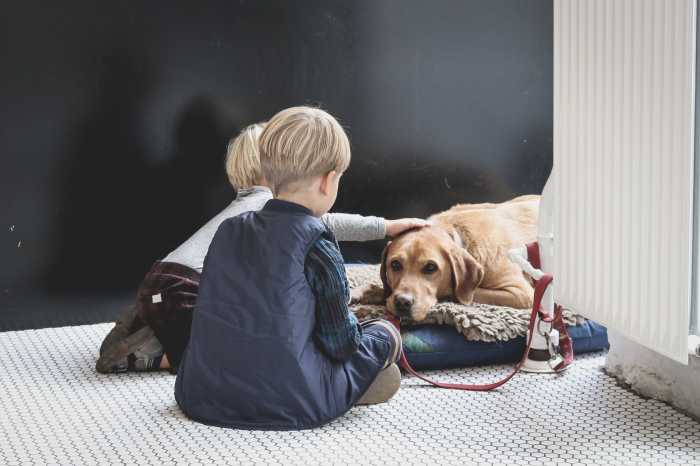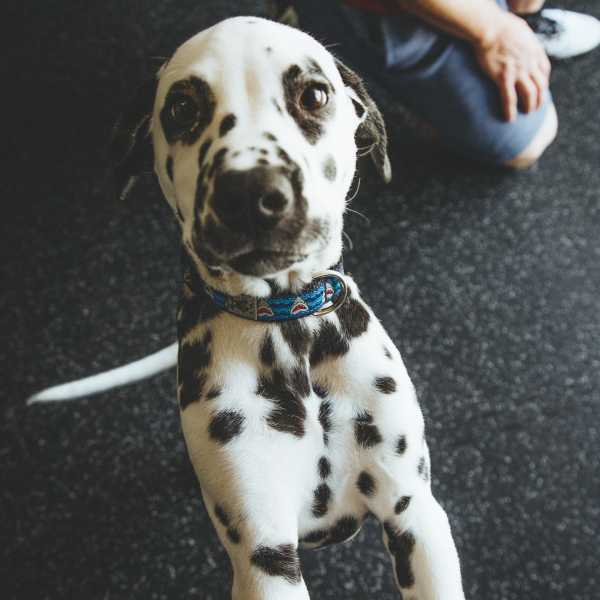
Pet Helpful - Worst and Best Dog Breeds for a Child on the Autism Spectrum
Posted on 9 June, 2023

Photo by sabina fratila on Unsplash
Written by Mark Dos Anjos, DVM for Pet Helpful
What Dog Breed Is Okay for a Child With Autism?
If you are the parent of an autistic child, you already know that not everything suggested by others, no matter how well-meaning, is appropriate. I have a family member that is on the autistic spectrum, and I was recently asked if I could recommend which dog breed would be best for him.
Of course, there are many excellent dog breeds that do well with children and with introverts like myself. One thing that needs to be addressed, however, is what dog breeds are not appropriate. A lot of dogs are great, but they are not all good choices for a child on the autistic spectrum and should not be suggested. So, what kind of dog breeds are the worst for most autistic children?
Worst Dog Breeds for a Child on the Autism Spectrum (ASD)
No matter which dog breed I discuss, there are going to be those who disagree and tell me that “my dog is perfect for a child with autism.” Yes, there are exceptions to every rule. All I can do is provide you with generalizations and warn you that many dogs among the breeds I listed are prone to problems (fragility, biting, excessive exercise needs, or a combination of those traits). So which are they?
Some breeds should be avoided because they are excessively fragile. They are the same dog breeds I do not recommend around toddlers, and if your child is older and on the calmer end of the spectrum, one of these dogs might be alright. In order to be safe together, however, one of the sturdier breeds should be considered first. You can check the list below for other suggestions:
- Italian Greyhound
- Maltese
- Japanese Chin
- Miniature Pinscher
- Toy Fox Terrier
Some dog breeds are more prone to bite. Your autistic child may own one of these dogs and never have a problem. However, based on my personal experience and according to some research done (a University of Pennsylvania study that interviewed more than 6000 dog owners), the dogs in the following list are not recommended. They are more likely to bite strangers as well as their owners:
- Chihuahuas
- Dachshunds
- Cocker Spaniel
- Lhasa Apso
- Pekingese
Other breeds should be avoided because they have a high exercise requirement. Your child may seem like he can handle those needs, but in all honesty, most kids cannot do so on a day-in and day-out basis.
- Siberian Husky
- Weimaraner
- Jack Russell Terrier
- Australian Cattle Dog
- Great Pyrenees (Almost all of the livestock guard dogs fit in this category)
Two of the most common dog breeds trained by service organizations, the Golden and Labrador Retrievers, also have high exercise needs. If your child is active, this is not going to be a great problem, but if he or she also has mobility issues and there is no one else in the household willing to take on the burden, choose one of the less active dog breeds.
7 Best Dog Breeds for a Child on the Autism Spectrum (ASD)
Some children with autism have limited social skills and find it difficult to maintain eye contact. The right dog does not care. Many of them will come up and ask for a chance to hang out alongside, and the lack of eye contact is never a problem. A University of Missouri study revealed that 94% of autistic children are able to bond with their dogs. They interact with their dogs during playtime and are able to share their personal space, and according to the families, learn about responsibility and decision-making.
The dog breed recommendations, just like with the list of worst dogs I have included above, also have to be generalized. Even amongst these breeds I have listed here, there are good individuals and bad. If you do get a dog and things do not go well, however, do not give up easily. Here are the seven of the best dog breeds for an autistic child:
- Golden Retriever
- Bichon Frisé
- Newfoundland
- Labrador Retriever
- Miniature Schnauzer
- Bernese Mountain Dog
- Saint Bernard
1. Golden Retriever: A Quick Learner
Why a Golden?
Golden Retrievers are intelligent and bond strongly with their family. These awesome dogs are large, sturdy animals that will do okay with an active child and still get along with smaller pets in the household because of their low prey drive (a cat, for example). Their combination of low aggression and ability to learn commands fast makes them a popular choice among groups training service dogs for autistic children, search and rescue, seeing eye, and others.
Why Avoid a Golden?
Shedding is one of the most serious problems with this breed. If you are a parent that wants to keep a dog hair-free household, a Golden is not the best choice. Behavioral problems can also develop, but as long as this dog is active, they are less likely to occur. Unfortunately, they are not a good choice for someone who has limited mobility and is not able to exercise a puppy. (Consider an older dog from an animal shelter or rescue or an adult dog from a service organization that is already trained.)
Potential Health Problems?
Shedding is a big problem since this dog has a long coat. Recurrent ear infections are a problem because of this dog's floppy ears, and this problem can be provoked by allergies. They are prone to obesity and arthritis, and cancer is a serious concern as the dog ages. About 60% of all Goldens die of cancer.
2. Bichon: Hypoallergenic and Great for an Apartment
Why a Bichon Frisé?
Well, if cute is important, these dogs will meet your needs. If you are in an apartment and still want to get a dog for your autistic child, then this is also a great choice. Bichons are social, sturdy, small enough (up to about 20 pounds) to be acceptable to most landlords, and, although no dog is hypoallergenic for all persons, this dog causes less allergic reactions than many others. (Bichons do not shed much, are clean, and tend to be groomed often, therefore, spreading fewer allergens in the environment.)
Why Avoid a Bichon?
If a Bichon is treated like a baby, the dog will probably develop “small dog syndrome.” Dogs with that syndrome bark too much, growl over anything they consider a slight, may bite, and tend to claim the most dominant area in the room. (Like your favourite easy chair.) Some dogs may have housetraining issues, especially if not taken out for a walk.
Potential Health Problems?
Dental problems, allergies, and other small dog problems (like luxating patella) have been identified often. Genetic problems are not present in lines that have been screened by good breeders, but hypoadrenocorticism, liver shunts, Immune-modulated hemolytic anemia (IMHA), and cataracts are still a problem. Bichons can also have inherited orthopedic problems like hip dysplasia and Legg-Calves-Perthes disease.
3. Newfoundland: A Trusted Companion
Why a Newfoundland?
These giant dogs are famous for their loyalty and well known for their lack of aggression. They are great for kids and so good with strangers that some organizations use them as rescue animals. If your child likes to go swimming in a river or lake, or you just want a great-looking friendly dog who will spend most of his time at your child's side, the Newfoundland is an excellent pick.
Why Avoid a Newfoundland?
If you do not have a lot of space, this dog breed is not a good first choice. They are 150 to 170 pounds, so they eat a lot, shed huge amounts, and drool a lot. These dogs have few behavioral problems, but if they are not taken out and socialized when young, they can be kind of shy. This is not really a problem if the dog belongs to a child, and the only reason this dog is not higher on the list is its short lifespan.
Potential Health Problems?
All giant dog breeds have a tragically short lifespan. Only about 38% of Newfoundlands even make it to their 10th birthday. Hip dysplasia is all too common, as are heart problems, eyelid problems, and epilepsy. Cancer is the leading cause of death.
4. Labrador Retriever: Worldwide Favourite
Why a Labrador Retriever?
Labradors are popular service dogs because they are rarely aggressive, are loyal, are friendly with most strangers, and are intelligent and easy to train. They are popular as pets for those reasons and because they are affectionate dogs that do well with children.
Why Avoid a Lab?
If you are worried about your child slipping your dog food underneath the table, the Lab is prone to obesity and will suffer if overfed. Shedding is a common complaint, but one of the most common complaints I hear is related to their excessive need to exercise when young. A Lab puppy should not be considered if your child has mobility issues and will not be able to take the dog for a long walk several times a day. (An adult dog available through a service organization is a good alternative.)
Potential Health Problems?
Orthopedic issues like hip dysplasia, elbow dysplasia, arthritis, and cruciate ligament injuries are all too common. Some dogs also inherit eye problems, muscle disease, and allergies that lead to chronic ear infections.
5. Miniature Schnauzer: Sturdy and Does Not Shed
Why a Miniature Schnauzer?
This dog breed is one of the most popular in the world because they are sturdy, do not shed much, are good with kids, and make good apartment dogs. They are playful and a lot of fun but, at the same time, make excellent watchdogs and can be trained easily.
Why Avoid a Miniature Schnauzer?
They do not do well when left alone all day and need adequate exercise to prevent behavioural problems like chasing, nervous digging, and excessive barking. Most people leave their dogs with beards, so they do need some grooming even when kept clipped short. If your autistic child has mobility problems, please search for a different breed of dog.
Potential Health Problems?
If allowed to become overweight, especially females, your dog will be prone to pancreatitis. Allergies are also common, and epilepsy and diabetes are seen a lot too. They also develop bladder stones.
6. Bernese Mountain Dog: Chill
Why a Bernese Mountain Dog?
This giant dog (about 110 pounds) is almost never aggressive, great with kids, good with other pets, and trainable with some persistence; the Bernese is an attractive choice and looks fantastic even lounging around. Almost all owners comment on the excellent companionship these dogs provide.
Why Avoid a Bernese?
The main reason Bernese is not rated higher on this list, and one of the only reasons to avoid one, are the health problems listed below. The average lifespan is only about 7 or 8, and only 28% of the dogs even make it to 10 years. They also have a long coat, so they will shed a lot, sometimes slobber, and are not one of the dog breeds that does well when left alone all of the time.
Potential Health Problems?
Cancer is a big concern with these dogs, causing about half of all deaths. Dogs are also prone to hip dysplasia, cruciate injuries, arthritis aggravated by obesity, and retinal problems.
7. Saint Bernard: Kind and Lazy
Why a Saint Bernard?
If you want a huggable and big (150 to 250 pounds), furry, kind dog that likes to romp but does not need to be exercised a lot, the St. Bernard is a good choice. They are great when out playing in the snow with the kids and are trainable (but not as quickly as a dog like the Golden Retriever).
Why Avoid a Saint Bernard?
Like some of the other big dogs, the St. Bernard does drool. These dogs shed a lot, so if you cannot handle dog hair, this is a terrible choice. They do not respond well to being left alone for a long time and can become destructive. Like many other breeds, personalities vary a lot depending on the line, but in this case, it is sometimes worse. If you do choose one of these dogs, make sure the breeder knows the dog will be a companion to an autistic child.
Potential Health Problems?
Health is a serious issue with this breed, and their lifespan is often tragically short. Many large and giant breed dogs are affected by hip dysplasia. The St. Bernard is no exception. They are also prone to other orthopedic problems like elbow dysplasia and osteochondrosis and may also have inherited diseases like heart disease, hypothyroidism, epilepsy, and eyelid problems.
Where Can I Find a Dog for My Autistic Child?
Your local animal shelter is the first place you can search for a dog. Adults are always a safer choice than a puppy since you can evaluate what the personality is like. The shelter may or may not have what you need for your child, so the next place to search is Petfinder.com. That site has listings of animal shelters across the US, and you may be able to find a perfect dog that way.
If you are still having no luck, be sure to check with rescue organizations that work in your area. When you pull up your search engine just type in the breed you are looking for, the area you live in, and add the word “rescue.” Let them know what type of dog you need when making contact, and discuss any worries you might have.
If you choose to find your dog through an ethical breeder, make sure that you discuss your child’s needs and make sure that your puppy’s parents have been screened for genetic diseases. An ethical breeder will make sure that you are choosing the right puppy. If you need more information, check out this article on finding a reputable dog breeder.
Sometimes, you will need even more help, so consider a service dog from one of the organizations that train dogs to work with autistic children. A service dog is going to cost more than an emotional support dog but is sometimes the best choice. Since emotional support animals have no legal rights, unlike service animals, your child can be told that he must leave his dog and not allow it on a plane, in a restaurant, or many other places. If you decide that you want to get a service dog, you can look into organizations that will allow you to research the possibilities.
Go ahead and contact several of these groups before making any firm decisions. A dog is going to live a long time and be a vital part of your child’s life.
References
- Silva, Lima, Santos-Magalhães, Fafiães, de Sousa, Can Dogs Assist Children with Severe Autism Spectrum Disorder in Complying with Challenging Demands? An Exploratory Experiment with a Live and a Robotic Dog, Journal of Alternative Complementary Medicine, 2018 Mar; 24(3):238-242.
- Burgoyne, L., Dowling, L., Fitzgerald, A., Connolly, M., P Browne, J., & Perry, I. J. (2014). Parents' perspectives on the value of assistance dogs for children with autism spectrum disorder: a cross-sectional study. BMJ open, 4, e004786.
- Hall, S. S., Wright, H. F., & Mills, D. S. (2016). What Factors Are Associated with Positive Effects of Dog Ownership in Families with Children with Autism Spectrum Disorder? The Development of the Lincoln Autism Pet Dog Impact Scale. PloS one, 11(2), e0149736.
- Wright, H. F., Hall, S., Hames, A., Hardiman, J., Mills, R., PAWS Team, & Mills, D. S. (2015). Acquiring a Pet Dog Significantly Reduces Stress of Primary Carers for Children with Autism Spectrum Disorder: A Prospective Case Control Study. Journal of autism and developmental disorders, 45(8), 2531–2540.
This article is accurate and true to the best of the author’s knowledge. It is not meant to substitute for diagnosis, prognosis, treatment, prescription, or formal and individualized advice from a veterinary medical professional. Animals exhibiting signs and symptoms of distress should be seen by a veterinarian immediately.
Comments
Mark dos Anjos, DVM (author) from The Atlantic Rain Forest, Brazil on August 31, 2020:
Erin, LGDs have excessive exercise needs. If someone recommends them they are incorrect.
This article is about dogs. If you feel like you want to ignore this advice because you have an autistic child that likes to take his dog for 5 or 6 long walks a day, you are free to do so.
Erin White on August 30, 2020:
This opinion on Pyrs would be great if they weren’t frequently on lists RECCOMENDED for children with autism. Can you please tell me what your credentials are, other than being a Vet, that qualify you on the subject of autism? Or what kids on the spectrum might need?
Mark dos Anjos, DVM (author) from The Atlantic Rain Forest, Brazil on August 04, 2020:
Kali, I have seen many of them that were super mellow couch potatoes. I have also seen a few that were overbearing. I certainly would not put them in the same class as a Bernese Mountain Dog or a Newfoundland, but if you want a short haired giant dog they are a good choice.
Kali on August 03, 2020:
Would you recommend a Great Dane?
Mark dos Anjos, DVM (author) from The Atlantic Rain Forest, Brazil on August 03, 2020:
Boo--he sounds great. Never too late for obedience training!
Boo on August 02, 2020:
We have a Tibetan Spaniel and he is the best dog for not only my son who is on the spectrum but for the rest of the family too. He is never aggressive, is very loyal and affectionate and has a wonderful sense of humour, joining in family games but never going too far and always stopping immediately once the nonsense ends. He loves visitors and even the cat - although the cat isn’t too sure about him! He’s also very smart and very cute and doesn’t need enormous amounts of exercising. His only drawback is that he’s not keen on coming when called although I’m sure had we trained him more as a pup this could have been overcome.
Mark dos Anjos, DVM (author) from The Atlantic Rain Forest, Brazil on May 16, 2020:
Heather, make sure you bring the dog home for a trial period before signing anything. Those dogs are crossbreds, some of them are low shedding like Poodles, some of them are just like Goldens and shed a lot. None of them are truly hypoallergenic, so you may end up having problems. (Hopefully not, but do not believe Goldendoodle breeders that say they never provoke allergies. Best of luck.)
Heather on May 15, 2020:
We're looking at a golden doodle for our autistic son and daughter. Like a golden but fewer allergy problems (I'm allergic).
Anya Ali from Rabwah, Pakistan on February 25, 2020:
Good article - thank you!
Mark dos Anjos, DVM (author) from The Atlantic Rain Forest, Brazil on February 17, 2020:
Thanks Peggy there are some research projects trying to find out why cancer is so prevalant in some breeds; it is so sad when it happens to any of us. I really admire that breed but would not want to go through what your neighbors have.
Peggy Woods from Houston, Texas on February 17, 2020:
I read with interest the best and worst dog breeds and reasons why for children with autism. Even people without the consideration of autism can learn from this. We have good neighbors whose golden retriever has cancer. Each one of their previous ones also died of cancer. So people need to take into consideration all the aspects of the different breeds before deciding to take one home. I appreciate your recommending the shelters as places to get pets. So many good animals are just waiting there for a forever home.
Mark dos Anjos, DVM (author) from The Atlantic Rain Forest, Brazil on February 17, 2020:
Hi thanks for reading. Yes, I have run into too many obese Labs and they pay the price down the road when their joints get old. Not much better job for a dog than cleaning up under a highchair though!
Liz Westwood from UK on February 17, 2020:
You give useful advice. I was interested to read which breeds you recommend in this situation. Having witnessed a labrador clearing up under a highchair I read your comments with particular interest.
To read the original article, please visit: https://pethelpful.com/dogs/dogs-for-the-autism-spectrum
Tags:



